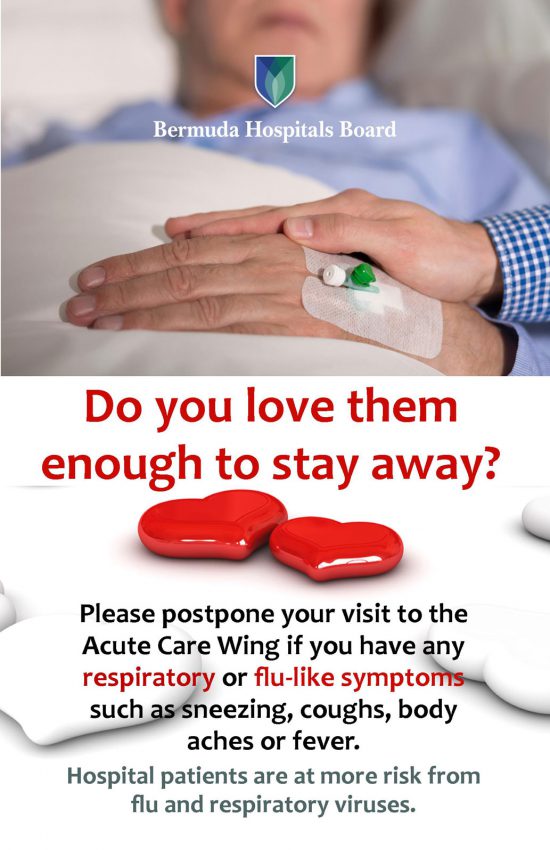BHB Public Advisory on the Flu
21 January 2019: BHB is experiencing a high number of people being admitted with complications from suspected and confirmed flu.
Dr Michael Richmond, Chief of Staff and Acting CEO, comments: “What is most concerning is the speed and virulence of the flu symptoms we are seeing in the hospital. This has not been a slow and steady increase. We have gone from zero patients with suspected flu complications in the intensive care unit to four confirmed and three suspected cases over just one weekend. Our Emergency Department is seeing an increase in patients coming with serious respiratory complications and in order to protect patients, the community and our staff, we are implementing a flu response action plan that focuses our nursing staff on the response and reduces traffic through the hospital from people who may bring in or take out with them the flu virus.”
- BHB is postponing non-emergency surgeries as needed, in anticipation of further admissions. Two were postponed today. We will review the status each day to decide on our ability to undertake elective, non-emergency surgeries. Emergency and critical surgeries (for example, trauma or cancer surgeries) will continue.
- BHB is requesting a maximum of two visitors per patient per day in all areas of the hospital, including long term care. The incidence of flu to date has come from the community, and infection has not occurred while patients are in hospital. We need to reduce further exposure of other visitors and patients. Long Term Care unit residents in particular are vulnerable to complications from flu.
- All visitors will be expected to wear masks in the Intensive Care Unit and use gel dispensers or soap and water to wash hands before and after seeing an individual.
- Only visit the Emergency Department if you need to. This will reduce the chance of you picking up flu from someone who is in the Emergency Department Waiting Room and relieve pressure in the Emergency Department. For minor illnesses and injuries, see your GP or visit the Lamb Foggo Urgent Care Centre in St David’s.
- If you have an outpatient appointment at KEMH but think you are sick with or coming down with flu, call to reschedule. You will avoid infecting other people in hospital, some of whom may be already unwell and vulnerable to flu.
- Get vaccinated. The vaccine takes two weeks to be effective, but the flu season still has a few months to run. It is the most effective way to reduce your chances of getting the flu.

